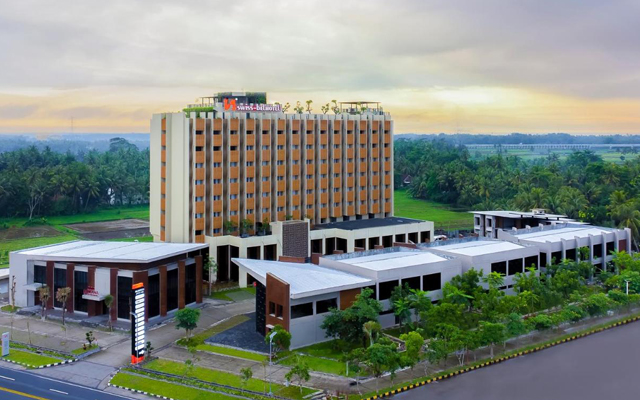Major hotel operators in Indonesia are striving to fill the gap left by the government sector, which contributes between 30 per cent and 40 per cent of business by diversifying market segments.
Haryadi Sukamdani, president of the Indonesia Hotels and Restaurants Association, said that the association, together with the Indonesia Tourism Industry Board, was working hard to have the government change the regulation restricting government agencies from holding events in hotels.

He reminded members to lower their reliance on the segment: “The hospitality industry, particularly our friends in the regional destinations in Indonesia, have been relying heavily on the government sector. We need to balance this moving forward.”
For Swiss-Belhotel International, the government sector is an important part of its overall business. And although the restrictions have had some impact, the company worked closely with its teams and partners to navigate the situation, according to Teresia Wibowo, its regional director of sales and marketing for Indonesia.
“We have always focused on diversifying our offerings to ensure that we can meet the needs of various market segments. While the government sector was an important component, we are exploring other opportunities to fill gaps,” she said.
Meanwhile, Archipelago International has proactively diversified its client base to mitigate the impact of fluctuating government activities, which have shown a gradual decline over the years. The hotel group, whose government market share has ranged from 30 to 40 per cent, had anticipated periodic slowdowns and diversified beyond government contracts.
John Flood, CEO of Archipelago International, told TTGmice: “By appealing to a wider audience, such as corporate clients, families, and FITs, we not only buffer against the effects of potential downturns and create a more resilient revenue stream.”
“For example, we achieved 97 per cent of our budgeted revenue in February, and we expect March to reflect similar results. This period also coincided with Ramadan (typically a slow month), making it difficult to determine how much of our performance is due to that versus actual government cutbacks,” he elaborated.
Santika Indonesia Hotels & Resorts is also focusing on diversifying into and penetrating new markets to compensate for the reduced government business in its properties.
Sudarsana, general manager of business development at Santika Indonesia Hotels & Resorts, said: “The financial sector remains active, as well as the pharmaceutical and healthcare industries. We will organise health-related events to attract participants, particularly in major cities like Jakarta and Surabaya.”
However, he acknowledged that the government regulation has affected overall business, and is hoping that the regulation “would change soon” before price wars occur over the shrinking business events pie.
Sudarsana explained that government restrictions extend beyond direct event bans in hotels, encompassing significant budget cuts across nearly all sectors. This impacts not only government agencies but also related entities like state-owned companies, contractors, and suppliers. Furthermore, recent regional restrictions on holding graduation ceremonies in hotels have closed off another potential revenue stream for their ballrooms.
Despite this, Archipelago International’s Flood remains optimistic.
“From experience, we know that new governments and governors, who took office in February, often take a few months to get organised. With over three million civil servants, it’s essential to hold meetings in hotels, so we are confident that in the next month or two, we will see a return of much of the government business.”





















